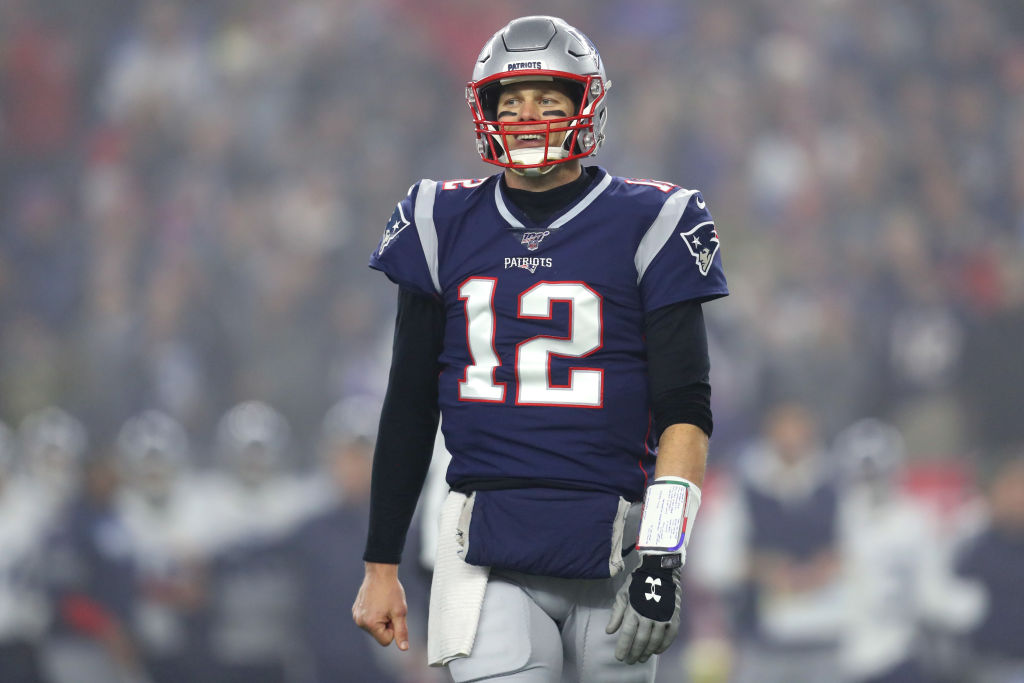Like a lone shipwreck survivor stranded on an island, I’ve been drawing tally marks on a piece of scrap paper to count the days that have gone by without sports. I know that, in the grand scheme of things, with people dying and our cities in lockdown, sports seem unimportant and trivial. Yet that’s precisely why its absence fills me with despair. ‘It’s just escapism,’ we’re told by those who can’t tell a slam dunk from a grand slam. But ever since overnight villain Rudy Gobert triggered a cascade of canceled games and tournaments, life has become a struggle to fill the sports-shaped void left in its wake.
The last time we had a living metaphor for this collective loss-of-meaning was following the September 11 terrorist attacks. Sports shut down entirely for a whole week, but even amid the dark despair and trepidation there was a sense that we owed it to the country to resume and restore, because that was precisely the opposite of what our enemy wanted. This time, it isn’t clear what or who our enemy is. It’s invisible and it takes over our bodies, weaponizing each of us. The very closeness embedded into the ritual of sports, both on the field and in the stands, has become an indefinite liability.
One by one, the dominoes fell, beginning with Adam Silver’s announcement about the suspension of the NBA’s season. Soon, the NCAA, NHL and MLB followed suit. With March Madness and baseball’s opening day scrubbed, I even found myself rooting for the continuity of golf. Then it was announced that the PGA Masters was also postponed. In a matter of days, the near-total sporting blackout gave America a giant wake-up call, crystalizing just how serious and consequential this pandemic was in a way that no White House press conference or CDC directive could. Rudy Gobert, it turns out, was an accidental hero.
The latest sporting event to bite the dust is the big kahuna, the 2020 Summer Olympics in Tokyo. After weeks of pressure from USA Track and Field and threats of boycott from the Canadians and Australians, the IOC and Japanese prime minister Shinzo Abe finally announced that the games would be postponed to 2021. For the crop of current and future Olympians, the COVID-19 pandemic has disrupted their training and put their dreams on hold; for some, it might have even robbed them of their only chance to compete on the world stage. No less devastating is the fate that has befallen the NCAA athletes in the class of 2020 who have now lost their final years of eligibility, been denied the opportunity to be scouted and drafted into the pros. Just imagine all the great sporting moments, captured on camera for eternity, that will now never happen. It’s all so sad.
Given the empty game schedules, my morning habit of checking the previous nights’ scoreboards and league standings had to be replaced. A natural substitute was to turn COVID-19 into a perverse world cup: to scrutinize the global dashboards and size up the stats for each country as if it were a leaderboard, except that the goal is to actually not be on top. But the numbers swelled at such an alarming pace that it plunged my mental state further into depression, so I turned to sports shows and podcasts. I had initially assumed that they would be temporarily dormant since their entire raison d’être evaporated. Fortunately, the transfer market was still active and the news around it provided adequate sustenance for my sports-starved brain, that is, until the news broke that Tom Brady would no longer be a New England Patriot. He would instead ride out the remainder of his long and storied career and make one last run for a seventh Super Bowl ring with the Tampa Bay Buccaneers. This, compounded with the news that NBA stars like Kevin Durant and Marcus Smart had tested positive for the coronavirus, only exacerbated my misery.
So I have sought solace in the only other place I know: the internet. It didn’t disappoint. Marble racing proved unexpectedly entertaining, as were viral videos of regular folks adapting sporting activities to fit in with their new quarantine lifestyle. By now, everyone has seen high-rise balcony tennis in Italy and walkathons made possible by DIY dish-soap treadmills and chuckled at the endearing human need for buffoonery. Rugby commentators, in the absence of any live matches, posted clips of themselves dramatically narrating everyday chores and mundane observations. Other professional athletes have taken their thirst for competition from the arena to Twitch, streaming basketball, hockey and even racing video games for millions of viewers who would otherwise be tuning into ESPN. Meanwhile, the sport gamblers amongst us got to scratch their itch with new innovative betting options on offer: political primaries, local weather, and reality TV shows like Survivor or The Bachelor.
The sporting world has never been so close yet so far away. We’ve been bombarded with story after feel-good story showcasing just how powerful and transcendent sports can be. Bitter Premier League rivals such as Manchester United and Manchester City joined forces for a charity drive to help local food banks strained by the coronavirus crisis, and players and club owners committed funds to aid stadium workers whose livelihoods faced sudden disruption.
These half-baked substitutes are OK, for now. But we’ve lost that glorious shared language and common denominator — a love of sports. Let’s hope its absence will further motivate us to fight the pandemic in solidarity, so that we can quickly resume our old lives and habits. Personally, I just can’t wait to go back to a time when I’m not desperate enough to watch golf.


















